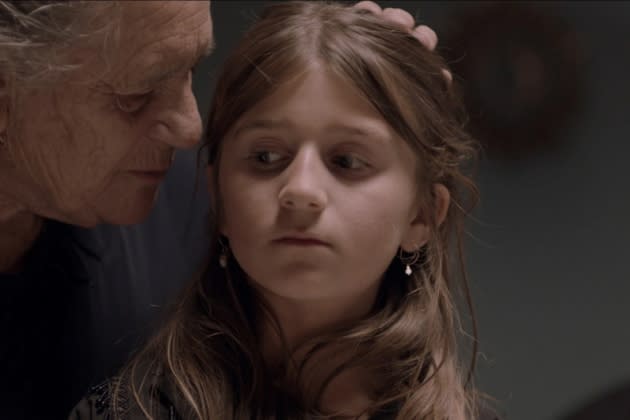Director Cristèle Alves Meira On Portugal’s Oscar Entry ‘Alma Viva’

In “Alma Viva,” Portugal’s Oscar entry which is currently screening in main competition at the Marrakech Film Festival, it’s Summer, time for Salomé to visit her beloved grandma Avo in North East Portugal.
Ever since they moved to France with her mom, she comes back every year. Avo is revered in the village, but also feared. Some consider her a witch. Grandma’s connection with spirits and the dead fascinates Salomé. But the summer idyll is over when Avo, a diabetic who for years self-medicated with herbs and spells, suddenly dies.
More from Variety
Arab World Independent Film Distribution Broken Down at Atlas Workshops
Marrakech VP Faïçal Laraïchi on Two Decades of Glamour and Ever More Emerging Talent
'Bump' Star Nathalie Morris Talks 'Petrol,' Which Sells to Australia, New Zealand (EXCLUSIVE)
While raging fires enclose the area, the family and neighbors struggle to find unity in mourning.
Sold by Kinology Films, “Alma Viva” marks the feature debut of experienced documentarian Cristèle Alves Meira, shot in the village of her mother and maternal grandmother.
“It is a region [left] deserted by the massive exodus of its population abroad or to cities. Few people who stayed live in the rhythm of the seasons and the land. You have an impression that time has stopped. That’s what you feel, when you see ‘Alma viva’ – it’s timeless” – the director emphasizes.
In “Alma viva” archaic mixes with contemporary, luxurious cars are parked near carts pushed by donkeys and Salomé teaches grandma how to twerk right after they tended to a dead body. “It is the conjunction of the old and the new, the profane and the sacred, the marvellous and the terror that creates the richness of this village. I wanted to bring that to the screen.”
The director has an intimate connection with the sets and the people she films. “I am made up of these two identities, of these two worlds. The film is not strictly speaking autobiographical, except that I really witnessed violent family crises at the time of the death of my grandmother who remained unburied for two years.”
The feeling of injustice that this awakened in her triggered “Alma Viva.” The film is meticulously cast, both professionals and non-professionals.“I spent a lot of time in the street, cafes, balls, discos, churches. I launched calls for casting in the Tras-Os-Montes region, and in French cities where the Portuguese population is high. I took advantage of several short films I shot before to cast actors for the feature film,” Alves Meira says.
“In ‘Campo de Viboras’ with Ana Padrao, Jacqueline Corado, Ester Catalao (Avo) and Sonia Martins, in ‘Invisivel Heroi’ with Duarte Pina, in ‘Tchau Tchau’ with Lua Michel (Salome). I have made up a family of cinema over the years,” Alves Meira explains. Her actors are always involved in the creative process. “I adapt to their doubts, to their limits, to their ease too,” she says.
Another presence, non-verbal but no less present, is the space. Mountains of North-East Portugal are full of legends and fascinating stories about witchcraft.
“These stories of witches from another time continue to exalt our sense of the imagination and fascinate us. They are told in secret, out of sight, it is taboo to talk about them in public. Witchcraft fascinates as much as it frightens.” says Alves Meira.
“To write this story, I drew on the observations of two anthropologists, Jeanne Favret Saada, who is interested in witchcraft in the French bocage and Miguel Valverde who looks into “sorcerers ” in Portugal. ‘Alma viva’ does not discern whether the powers of magic are real. The film is an observation of these beliefs on the ground. My intention was that the film opens viewers to another way of inhabiting the world, to accept the inexplicable”.
Along with her cinematographer Rui Poças, theysought to create atmosphere carrying this supernatural tension. “A starry sky, the cry of an owl, the beats of a drum, a providential rain, the miracle is played out in small things.” The challenge was to always stay with Salome’s point of view, see the world through her eyes.
“Alma viva” is now Portuguese candidate for an international feature film Oscar nomination, which came as a huge surprise to Alves Meira. “Being born in France, I have a somewhat special identity status. This nomination is a way of recognizing this part of Portuguese history that politicians do not like to see. It is a way of assuming and making visible the massive emigration of Portuguese throughout the world, which I myself am fruit of. It is an immense honor that it can resonate throughout the world thanks to this”.
Best of Variety
Sign up for Variety’s Newsletter. For the latest news, follow us on Facebook, Twitter, and Instagram.
